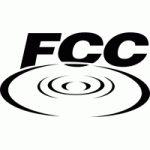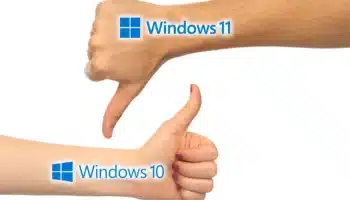Sprint on the wireless price war: We were already cheaper!

Last Friday, Verizon announced it was lowering the cost of its unlimited voice plans while simultaneously adding mandatory data plans for mid-range "media phones." Later in the day, AT&T announced it was lowering its unlimited voice plans by about $30, so the two companies could remain in close competition.
Today, Sprint issued a statement about its "Everything Data" plans, showing that its individual plans are about $20 cheaper than Verizon across the board, and that its 2-line family plans can be as much as $50 cheaper, depending upon the amount of minutes.
Microsoft: Out-of-band fix to IE6 Google/China exploit to come soon

In a display of calm defiance against the notion that reacting publicly to a threat against its customers is a "marketing tactic," a Microsoft spokesperson confirmed to Betanews this afternoon that a fix for the recently uncovered remote code execution vulnerability in Internet Explorer 6 will be made publicly available some time prior to the next round of Patch Tuesday updates. The exact time of the patch's release, as well as the scope of users who should install it, will be revealed tomorrow.
This would limit Microsoft to a four-week response window since last Tuesday, when Google broke its veil of silence to reveal its servers had been attacked by sources apparently emanating from China.
Bing may beat Google to compliance with EU anonymization directive

In an announcement early this morning, Microsoft stated it is altering the policy of its search engine Bing with regard to retaining personal data collected from its users. Under a new policy that may take as long as 18 months to implement, the company says, it will anonymize its data logs after only six months of retention rather than the previous 18, in compliance with a European Union directive -- perhaps the first major US-based search engine to comply.
In April 2008, the European Union's advisory body of member states' telecommunications ministers, called the Article 29 Working Party, advised that search engines doing business in their region should anonymize the personally identifiable data they've collected on their users after a six-month period. The theory here has been, after six months' time, search engines won't be able to make much use of them to refine the efficacy of current queries -- the original excuse for Google, Yahoo, and Microsoft to keep such data for longer periods.
Hey, Microsoft, Internet Explorer security talk is cheap

Why don't you clam up and do something already?
On Sunday, I asked question "Should you dump Internet Explorer, NOW?" and quickly offered yes as the answer for all versions of the browser. Reaction to the post surprised me. As I write, there are more than 155 comments. Clearly, IE is a sensitive topic with readers -- and also with Microsoft, which has once again taken a "security by PR'' approach to the problem rather than to offer a real solution.
There's no quick end in sight to Nokia's patent fight with Apple

In October 2009, leading mobile phone maker Nokia sued Apple over the iPhone, claiming the company never fairly compensated Nokia for using its patents. Two months later, Apple countersued, claiming that a number of Nokia products violated Apple's own patents.
Then just over two weeks ago, Nokia fired back with more accusations, and cited Apple's culture of "stealing great ideas" to advance its own products, which extends well beyond the iPhone, and into all of Apple's products (PDF available here).
NSF study gauges Americans' interest in tech news at 12-year low

A study released yesterday by the US National Science Foundation (PDF available here) cites data from the Pew Research Center and other leading academic centers and universities, as indicating that Americans' interest in news about science and technology topics is perhaps 35% lower today than at the advent of the Web.
Most notably, a Pew Research survey of an average of 3,615 respondents per year, in an ongoing study dating back to 1977, shows a precipitous decline in the number of Americans who say they "closely follow" science and technology stories, from 1996 to 2008. While 20% of respondents admitted to closely following tech news prior to the Web's deployment on the Internet, only 13% admitted so in 2008. (Data for 2009 has yet to be assimilated.)
The narrowing divide between the rest of the world and Haiti

Betanews urges its readers everywhere to contribute to the effort to restore vital services to Haiti, by contributing to the Clinton Bush Haiti Fund today.
I'm of two minds as I watch the heart-wrenching disaster unfold in Haiti. On the one hand, technology has been pressed into service in innovative ways to connect victims with their faraway families, to marshal resources from aid-providing nations and organizations, and to make it easier for you and me to help out by texting contributions from our mobile phones. Rescuers are Twittering, albeit haltingly, from the front lines, while Facebook pages are serving as virtual bulletin boards -- all signs that social media continues to come of age as a force for good in a less-than-fair world.
Duarlander: Paying for Android beta testers

Android fragmentation is a serious problem. Not only are there already three live versions of the mobile operating system, and more than 25 phones from over 10 different manufacturers, but a handful of different app stores and app distribution channels. The future only holds more of everything.
Now, a new community called Duarlander is forming, where beta testing is crowdsourced to all Android users registered with the service. Developers submit their Android Package files (.apk), and then pay a fee between $100-$250 which is distributed among the beta testers.
Where have all the iPhone TV commercials gone?

After several years of nearly continuous iPhone TV advertising, commercials have seemingly vanished from U.S. primetime TV -- I can't find them. Have you seen any lately?
I'm not a big TV watcher, but my fav shows typically are chock full of iPhone -- "There's an app for that" -- commercials. While I DVR every show, I still pay close attention to the advertising. What can I say? I'm a sucker for clever marketing. In watching primetime programming over the last 10 days, I started noticing iPhone commercials for their sudden absence.
Apple's 'latest creation' to debut January 27

Invitations for an Apple event on January 27 have started to roll out to the media, sporting the enticing headline "Come see our latest creation."
Like Apple's other events at the Yerba Buena Center for the Arts in San Francisco, the invitation is light on details, but presents a vague clue that hints at what the event will cover. This particular invitation is a spraypaint-splotched card with the Apple logo in the center.
Motorola launches another multitouch Android 2.0 device, this time in Korea

Motorola CEO Sanjay Jha said "the majority" of the company's phones would incorporate a multi-touch interface moving forward, and as long as they're being released everywhere except the US, that statement will surely prove true. Today, Motorola announced its second Android-powered handset which supports the feature, called MotoROI.
Because the device is destined for South Korea, where market demands are different --and those pesky intellectual property agreements do not apply-- MotoROI includes: Terrestrial DMB, the Korean peninsula's popular freeview mobile DTV standard, 720p HD video capture with HDMI output, and an 8 megapixel camera with panorama, face detection, OCR, multi-shot (6 shots in a row), face filter, red eye reduction, and automatic image stabilization. Like the Verizon Droid's European counterpart, the Milestone, MotoROI features out-of-the-box multi-touch support, including the venerated pinch zoom action.
Should you dump Internet Explorer, NOW?

D`oh, now there's a redundant question.
Yesterday, ZDNET blogger Ed Bott asserted that "it's time to stop using IE6." I s-o-o-o-o disagree. For many organizations and all consumers, it's time to stop using any version of Microsoft's browser -- IE6, IE7, IE8 and forget someday releasing IE9. Less than a week ago, the German government told its citizens to switch from Internet Explorer. This is good advice for you, too.
Hundreds of wireless microphones in 700 MHz band to go obsolete

Literally hundreds of different wireless public address systems that utilize the 700 MHz UHF band for microphones, intercoms, and in-ear monitors must now be replaced or reconfigured, and it's because of the great DTV shift that took place last year.
In 2008, the FCC auctioned off the 700 MHz frequency band that formerly belonged to UHF channels 52-69, and a large chunk of the band went to AT&T, Verizon, Cox, and King Street Wireless, a holding company associated with US Cellular. Now that the DTV transition is complete and next-gen wireless services are being built around the spectrum that was freed, the FCC has prohibited the sale and distribution of 700 MHz consumer devices.
Mozilla: No, Firefox XUL add-ons are not an endangered species

Last May, Aza Raskin and the team at Mozilla Labs introduced Jetpack, essentially an extensibility model for the organization's Firefox browser that enables new JavaScript apps to modify the functionality of the browser on the fly. The goal is that anyone who could create a Web page could use exactly the same tools (HTML, CSS, and ordinary JavaScript, plus the appropriate APIs) to build a Firefox add-on. Now on version 0.7, Jetpack is slowly gaining momentum.
But where will that momentum lead? Is Mozilla seriously considering the Jetpack development model as an eventual replacement for XUL (XML User Interface language, pronounced "zool" like the refrigerator-based creature from Ghostbusters)? That was the question ZDNet blogger Adrian Kingsley-Hughes asked earlier this week, in a blog post entitled, "Is Mozilla preparing to ditch add-ons as we know them?"
Microsoft: We weren't talking about Windows Mobile 7 at CES

A Microsoft spokesperson contacted Betanews today requesting we clarify a story we brought you during the tail end of CES 2010. Specifically, we presented an interview with Windows Phone Senior Marketing Manager Greg Sullivan entitled, "Finally, what to expect from Windows Mobile 7 and Windows Phone."
At the time, we were under the impression that the interview was providing us with a taste of what we could expect from Mobile World Congress in February, and I suggested that Windows Mobile 7 was "only two months away," even though "Microsoft really [wasn't] talking about Windows Mobile 7 specifically."
BetaNews, your source for breaking tech news, reviews, and in-depth reporting since 1998.
© 1998-2025 BetaNews, Inc. All Rights Reserved. About Us - Privacy Policy - Cookie Policy - Sitemap.




